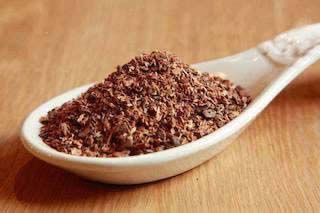
Wild cherry bark is a medicinal herb derived from the black cherry tree that has been used for hundreds of years due to its antiviral, antibacterial, and anticancer properties. It is rich in minerals such as zinc, iron, calcium, and magnesium and phytochemicals such as quercetin and kaempferol. Wild cherry bark also contains vasorelaxant, expectorant, and decongestant properties and can significantly help to remove mucus from the lungs and increase lymphatic system function.
This is why wild cherry bark is a common ingredient found in cough syrups and is an effective remedy for respiratory conditions such as bronchitis, laryngitis, asthma, pertussis, colds, flu, and chronic lung congestion. Wild cherry bark is also an excellent digestive remedy and is known to help soothe digestive ailments such as gastritis, diarrhea, colitis, flatulence, constipation, and irritable bowel syndrome.
Wild cherry bark is also often used as a mild sedative to relax muscle spasms, reduce hypertension, ease cramping, and provide for a more restful night’s sleep. Wild cherry has been shown to help slow down cancer cell growth through its ability to help “switch off” cancer cells ability to duplicate and grow particularly in the colon area.
Topically, wild cherry bark is beneficial as an eyewash for inflamed, puffy eyes and or as a cream to help soothe skin problems such as eczema, psoriasis, acne, and rashes. Wild cherry bark tea can be made by simmering 2 teaspoons of dried bark in 2 cups of water for at least 30 minutes. Allow to cool, strain and sweeten with raw honey if desired. Wild cherry bark can be found in extract, syrup, tincture, tea, capsule, or cream form online or at your local health food store.
This item posted: 06-Jun-2015
The information provided on this Site is for general informational purposes only, to include blog postings and any linked material. The information is not intended to be a substitute for professional health or medical advice or treatment, nor should it be relied upon for the diagnosis, prevention, or treatment of any health consideration. Consult with a licensed health care practitioner before altering or discontinuing any medications, treatment or care, or starting any diet, exercise or supplementation program. Neither Anthony William nor Anthony William, Inc. (AWI) is a licensed medical doctor or other formally licensed health care practitioner or provider. The content of this blog and any linked material does not necessarily reflect the opinions of Anthony William, AWI or the principal author, and is not guaranteed to be correct, complete, or up to date.
Thanks for printing this post. For more, visit nwwbettn.top